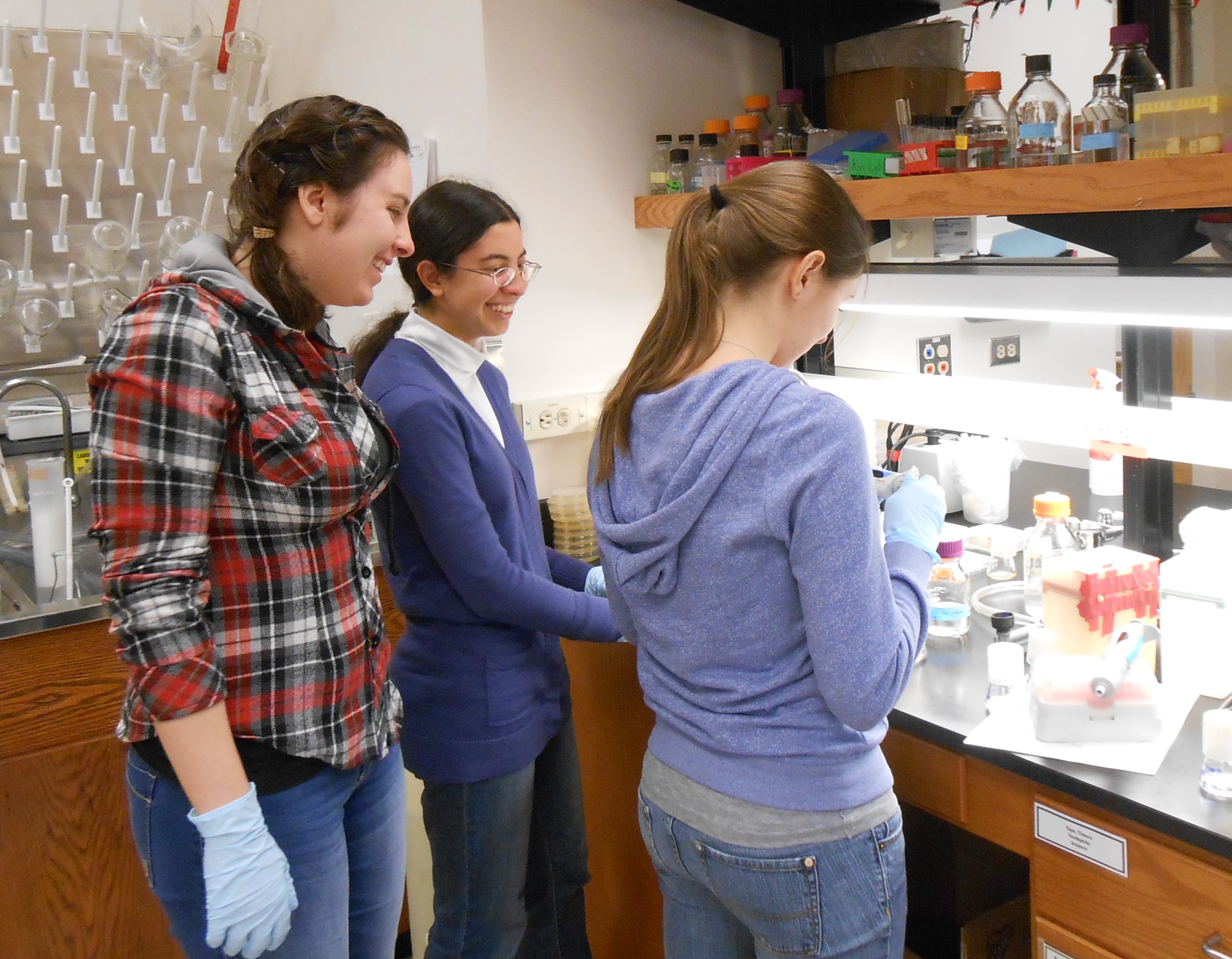Bio 482 SDAC

Fig: Titering virus to mark cooperative strain for viral resistance to differentiate them from the cheaters
Research Description
In this project, we explore conditions that are critical for de novo evolution of cooperation and altruism in a bacterial system. Previous theoretical work has shown that there is a competitive advantage to defection and selfishness, but the ubiquity of cooperation in nature suggests that cooperation may be adaptive. Here, we aim to uncover environments and genetic conditions that promote greater cooperation. We use an engineered cooperative strain of E. coli. Through a bistable genetic switch, single cells have the capability to be either a producer cell that makes the cellulase enzyme to break down cellulose, or a consumer cell that eats the byproducts of cellulose breakdown. Our first aim is to characterize the social dynamics of this synthetic system and determine if a social dilemma is in fact occurring—i.e., is there a cost to producing cellulase, and can cheaters that do not produce cellulase displace the cooperators that do? Our second aim is to evolve the system over many generations and analyze how it changes. Uncovering the conditions favoring higher cooperation (e.g., greater production of cellulase) provides insight into how cooperation can evolve and how populations circumvent social dilemmas. We hope to use evolution as a tool to tune the synthetic genetic circuit for maximal cellulose breakdown. On a broader scale, these conditions that favor cooperation may have practical applications in waste degradation and biofuel production.
Back to Biology 482 Homepage